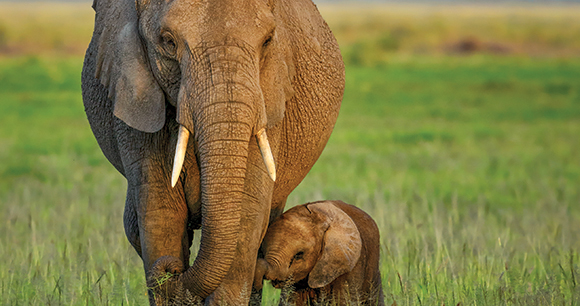In March, AWI submitted comments to the US Fish and Wildlife Service (USFWS) urging the agency to ban the import of live African elephants and their trophies into the United States due to significant welfare concerns and a lack of conservation benefits for wild populations in Africa. African elephants are listed as threatened under the Endangered Species Act (ESA), and specifically tailored protections for the species are set forth in what is known as a “4(d) rule.” The USFWS is revising the existing 4(d) rule (issued in 1978), with the goal of ensuring that US actions enhance African elephant conservation. The agency’s proposed revisions represent an improvement over its current import policies. However, given the severity of the threats faced by the elephants and the precipitous decline in their populations in recent decades, a more robust strategy is necessary.

AWI expressed strong opposition to the continued import of wild-caught African elephants for display in zoos in the United States. Elephant welfare is severely compromised in captive environments, which cannot meet the species’ complex biological, social, and cognitive requirements. Such facilities are unable to adequately emulate the habitats, diets, and herd dynamics of elephants in the wild, and elephants in captivity commonly develop behavioral abnormalities associated with stress; suffer from foot maladies, musculoskeletal issues, obesity, and infectious diseases; and experience lower birth rates and higher mortality rates compared to their wild counterparts. This has been linked to the lack of natural social structures and dynamics, inadequate enclosure size, and poor enclosure design that are inherent in the zoo industry. Additionally, capturing wild elephants for a lifetime in captivity provides no conservation benefit to the species, as no elephants bred in zoos are ever returned to the wild.
AWI also urged the USFWS to institute a full ban on African elephant trophy imports. The United States continues to be the world’s largest importer of hunting trophies, which exacerbates existing threats and undermines our nation’s reputation as a global conservation leader. No credible scientific evidence demonstrates that trophy hunting consistently provides meaningful conservation benefits to the species in the wild. The nonconsumptive value of elephants, in terms of revenue generated by tourism from eco or photo safaris, far outweighs revenue generated from hunting. African elephants also have immense value as “ecosystem engineers.” The ecological services African elephants provide include forest regeneration through seed dispersal, nutrient cycling, creation of microhabitats that benefit numerous other species, and carbon sequestration. In its proposal, the USFWS also did not adequately consider the negative impacts of trophy hunting on herd structure and dynamics, genetics, and behavior, or Africans’ cultural and social perceptions of trophy hunting.
Many African elephant populations are already severely depleted due to other threats, such as habitat loss, human-elephant conflict, regional conflict and instability, climate change, and a dramatic escalation in poaching during the 21st century. A comprehensive survey of Africa’s savanna elephants, published in 2016, found that their numbers declined by 30 percent between 2007 and 2014. Between 2002 and 2011, the African forest elephant population declined by 62 percent, and its range was reduced by 30 percent. Considering these severe threats, the United States must take stronger action to protect African elephants.